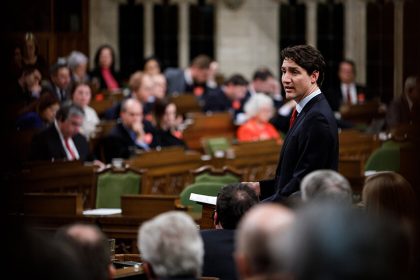The collapse of Berlin again – ISNA
Referring to the victory of Trump, who is known for his anti-European policies, the American publication wrote: “The collapse of the German coalition government and the possibility of holding early elections have made Berlin face an unprecedented crisis similar to the post-World War II era.”
According to RCO News Agency, German Chancellor Olaf Schultz caused the collapse of the German government on Wednesday evening by firing Christian Lindner, the finance minister of the three-party ruling coalition government.
Schultz and European and American publications have stated that the reason for Lindner’s dismissal was “persistent differences” between the German chancellor and the finance minister of this country regarding economic reforms.
Serious negotiations in the coalition of Schultz’s Social Democratic Party, the Greens and the Free Democratic Party came to a head after the Free Democratic Party issued a document with demands for liberal economic reforms that were difficult for the other two parties to accept.
During a three-party leaders meeting Wednesday evening at the chancellor’s office, Lindner told Schultz he saw no way forward for the coalition and asked him to pave the way for early elections.
Whatever the reason for Lindner’s dismissal, the collapse of the German government is certain, and according to the American media, the coincidence of this crisis with the inauguration of the second Trump administration will be “dangerous” for Europe and Germany.
After Lindner was fired, Schultz told reporters, “I wanted to spare you this difficult decision. “Especially in times like the current situation when uncertainty and instability are increasing.”
Christian Linder
Trump’s victory and the beginning of an unstable political era in Germany
Referring to Schultz’s press conference, the New York Times wrote: “The German Prime Minister promised to continue ruling until the end of this year and will ask the German Parliament for a vote of confidence in January.” But he will probably fail to win this vote. If the German parliament does not vote for Schultz’s government, Germany will face early elections for the first time since World War II.
The publication wrote: “The rare crisis in Berlin will make the European Union more powerless than ever against Trump’s victory and Russia’s increasing advance in Ukraine.” The European Union is likely to enter a new economic war with the United States. “Trump has threatened to weaken the European Union and NATO.”
The New York Times stated: “In such a situation, Germany, as the most populous country in the European Union, has faced an unprecedented internal crisis. The three-party coalition governing Germany has been fragile and difficult to operate since it began its activities in 2021, but the collapse of the coalition in a country that has always had stable and predictable policies is also surprising.
The American publication added: “The collapse of the German government could be the beginning of an unstable political era in Germany. “At the same time as the political landscape is collapsing, populist and far-right parties are increasing in popularity in Germany.”
According to the New York Times, in recent weeks there had been whispers about the collapse of the German government and the dismissal of Lindner.
This publication wrote: “After Lindner’s position was exposed by the media and the approach of the other two political parties present in the coalition was challenged by this article, the possibility of the collapse of the German government intensified.”
According to this American publication, Lindner was looking to be expelled in order to leave the three-party coalition ruling Germany without direct action.
Some experts have also called the exposed position of the fired German finance minister a “divorce certificate”.

Schultz
Germany’s economic crisis
“Germany is the largest economy in the European Union, which makes the largest contributions to the EU’s budget,” Sodha David-Wilp of the “German Marshall Fund” told the New York Times. The European Union should be able to be sure of Germany’s internal conditions, and a minority government will mean instability in Germany and its partners in Europe.
In this regard, according to the report of “Associated Press” News agency, “Friedrich Mertes” from the center-right Christian Democratic Party in Germany expressed his desire to hold early elections in this country and said: “The coalition government no longer has the majority of seats in the parliament.” “We cannot have a minimal government for several months and campaign for elections for several months. The elections must be held immediately.”
In this situation, according to the New York Times report, the most serious crisis in Germany is the economic crisis. The country’s economy is shrinking and it is expected that the German economy will shrink by 0.2% by the end of 2024.
This is the second year in a row that the German economy is in recession. Germany has the weakest economy among the G7 and the countries using the euro currency.
end of message
RCO NEWS
RCO


















